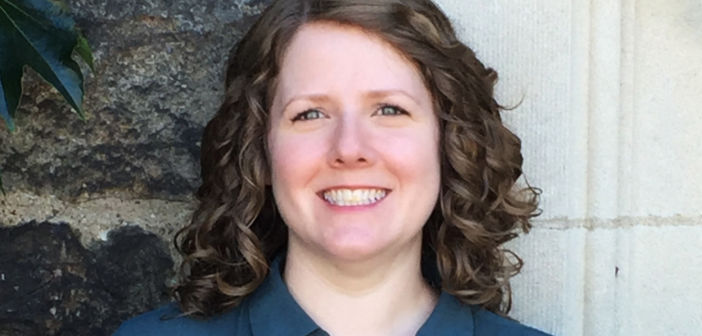Jessecae Marsh, an associate professor in Lehigh’s psychology department, is collaborating with Samantha Kleinberg, a computer scientist at Stevens Institute of Technology, to develop artificial intelligence that provides personalized information to patients so they can actively participate in managing their health.
Marsh and Kleinberg met at a conference last summer and realized they shared interests while discussing their work.
Kleinberg helped secure roughly $2.3 million in three new grants from the National Science Foundation and the National Institutes of Health.
The two have secured funding for four years and will begin their work at Lehigh next semester.
Kleinberg said the grant is focused on type 2 diabetes and how patients and doctors collaborate in shared decision making concerning patient care, prevention and management.
Kleinberg goes though large, real-world data sets, such as health data sets, and uses machine learning to examine the cause and effect relationship between variables. Marsh will conduct online research.
“If we can figure out how to find what a patient believes to be true about diabetes and be able to compare that to what a doctor is saying is true in diabetes, we can start figuring out where (patients) might need more education,” Marsh said. “(Patients) might need more knowledge and that can be really important for actually changing health behaviors.”
Kleinberg said their approach is based on the results of AI learning as a collaboration with humans. She develops algorithms that can take information about patients in a personalized way to identify the risk factors and determine the appropriate treatment for them and their diabetes.
“The cognitive science is how do we figure out what to tell people, what information to show them, since what I can learn from the data is going to be much more complex than what people can deal with and might be overwhelming,” Kleinberg said.
Marsh said the research is focusing on creating a shift from the historical version of decision making — otherwise known as paternal decision making — where doctors would make decisions for patients, to a shared decision making process between doctors and patients.
She said instead of a doctor telling a patient about treatment, there will be a collaborative conversation about the different options and the patient’s expectations and preferences.
Catherine Arrington, an associate professor of psychology, said she has been really amazed with the insight Marsh has for both the educational and research missions of the university since coming to campus.
“She is able to understand that balance between educating our undergraduate and graduate students and doing that in the context of being active researchers,” Arrington said. “Her energy in the lab setting is such a benefit to the students who work in our lab. She is engaged in so many different types of research with students.”
Jenna Lefkowitz, ‘20, is currently in a healthcare class Marsh teaches.
“She seems to know a lot about what goes on in the healthcare field and why certain physicians make the decisions that they do, and both their strengths and limitations,” Lefkowitz said.
She said Marsh places a heavy focus on mental health.
Marsh said she is hoping to develop an interface used in a doctor’s office for a patient to fill out upon entry to gauge their understanding and perception a disease. A better understanding of a patient’s mindset and knowledge will allow doctors to more accurately understand what their patients believe, leading to more effective conversations, and ultimately, a higher quality of care.
“It’s good for physicians to be aware of both their strengths and limitations so they are able to make the most rational, informed decisions for the healthcare field,” Lefkowitz said.
Marsh said hopes her research will lead patients to engage in healthier behaviors as soon as possible, which will ultimately help them manage their diseases better.






Comment policy
Comments posted to The Brown and White website are reviewed by a moderator before being approved. Incendiary speech or harassing language, including comments targeted at individuals, may be deemed unacceptable and not published. Spam and other soliciting will also be declined.
The Brown and White also reserves the right to not publish entirely anonymous comments.
1 Comment
““She seems to know a lot about what goes on in the healthcare field and why certain physicians make the decisions that they do, and both their strengths and limitations,” Lefkowitz said.” My experiences in the medical field (patient) and engineering (job) indicate that despite expertise and strengths, decision makers have limitations. Some of these limitations are unknown by both the decision maker and the one affected by the decision while some limitations are actively ignored by the decision maker. Not actively thinking is a major cause of problems where a proper decision is not made despite knowledge to the contrary which was not accessed. it is why Watson beat Ken. This is despite the fact that Ken can do many things that Watson has not been set up to accomplish. Good people can make bad decisions.